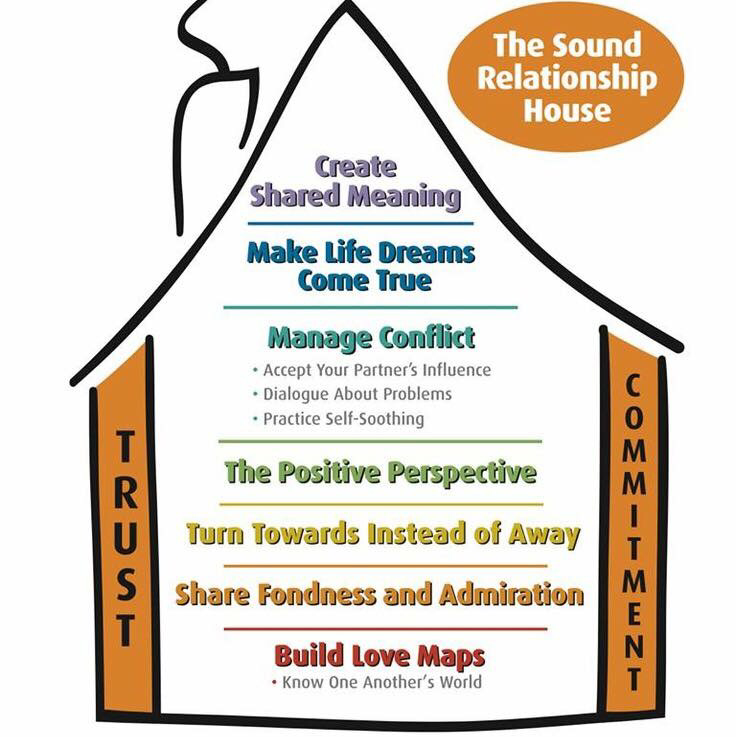
SOUTH TAMPA THERAPY FREE RESOURCES BLOG
Voice Dialogue
Voice Dialogue is the main intervention used in a modality called the Psychology of the Selves developed by psychologists Hal and Sidra Stone, who had such diverse influences as Jung, Skinner, Kazantzakis and Hermann Hesse. Their theory suggests that various parts of self coexist within each of us and determine our thoughts, behaviors and relationships with others.
Each of us "contains multitudes". We are made up of many selves, identifying with some and rejecting others. This over-identification with some selves and the loss of wholeness that comes from the rejection of others, can create imbalances and blind spots. This work is about embracing all the selves. This dance of the selves is an amazing process and we see the dynamics of the world around us shift as our internal world changes.
Rather than making choices based on a given criteria (the most rational, what feels right, what other people want, etc.), Voice Dialogue encourages a discussion between the parts of self at odds with one another. The understanding and expression of these selves helps us increase our self-awareness and even function better within a relationship. Although it does turn a couple into a group rather quickly.
1. When would a clinician use Voice Dialogue?
When there is a sense that the client has a feeling that he or she has different selves or parts. For example, let us say that John goes to a party that he doesn't really feel like going to. Once there he has a few drinks and soon he is the life of the party. In the middle of the night when he awakens he is a bit depressed. In his session he may say something like: "I don't understand how I get into these things. I really didn't feeling like going and again it is as if something just takes over and there I am again doing something I don't really feel like doing." In a situation like this Voice Dialogue could be a very effective intervention.
2. What does it look like?
The therapist might say: "It really does sound like there are two very different ways of being or value systems that are operating in you. There is you the party person, the more extraverted self who generally needs some alcohol or drug to get him going. On the other side is a more introverted part of you trying to come out and be heard but he seems to have less authority than the other one. How would you feel about my talking to these two feelings or ways of being in the world to see if this might help clarify some of the conflict that you are describing?"
The therapist starts always with the self that is the more primary, that leads his life in the world. For this the client actually moves over physically to a different position and the conversation or interview begins. When finished John would go back to the center for a discussion of the work so far. In this, or the next session, the therapist might have a conversation with the less developed, often totally disowned self.
3. How does it help the client?
It helps the client in three ways. First he gets to hear in a very objective way what these different "voices" or selves have to say, what they want and need, how they developed -- the family forces that shaped them. Just knowing that the voices are real can be a total revelation. A woman might say that she can't stand looking in the mirror in the morning. To discover that she has a voice in her, the Inner Critic, that embodies all of her self criticism can initiate a major shift in her life.
Secondly, the therapist helps to develop a new place between the opposites, a place that can help the client hold the introversion with one hand and the extraversion with the other. It is a new "center" of personality that we call the Aware Ego. It is this Aware Ego Process that can learn to embrace the vast system of opposites that live within each of us.
The third advantage is that from this Aware Ego Process the client is in a better position to make conscious choices. A conscious choice is one that honors both sides of the conflict no matter which choice is actually made.
4. In your opinion what makes Voice Dialogue a cool intervention?
First of all it is way of working that is fun and alive and brings in all kinds of different thoughts, feelings and emotions. It is impossible as a therapist to be bored or tired doing this work. It the therapist gets tired or bored it is because he or she has fallen into a pattern of being overly responsible or overly mental or some primary self that limits possibilities of enjoying the work.
Secondly there is the constant excitement of new discovery. Discovering and separating from a primary self is like waking up from a dream and discovering whole new worlds of possibility.
Thirdly, what you judge in the world are generally expressions of selves in you that have been shut down or rejected over time. What a ride it is and how relationships do change as you begin to learn how to catch hold of these judgments.
Fourthly, how different it is to learn how to allow your own vulnerability to live in the world of relationship. So many people look for more meaning in their lives. Learning how to use vulnerability in a conscious way is really the royal highway to a more deeply felt and experienced life.
Gottman Method Couples Therapy
What is Gottman Method Couples Therapy?
Developed by Drs. John and Julie Gottman of The Gottman Institute, Gottman Method Couples Therapy is a research-based approach to strengthening relationships.
Dr. John Gottman has been studying relationships for decades, gaining insight about what makes relationships last. Over 3,000 couples participated in long-term research studies, which led to the development of one of the leading methods of couples therapy.
What are the goals of Gottman Method Couples Therapy?
-To increase respect, affection and closeness,
-Break through and resolve conflict when partners feel stuck,
-Generate greater understanding between partners,
-And keep conflict discussions calm.
How do we accomplish this?
Drs. Gottman developed “The Sound Relationship House” which includes the 9 components of a healthy relationship. A therapist who is trained in The Gottman Method can keep your therapeutic work on track by including activities in session which help your relationship in these areas:
Build Love Maps (or how well you know your partner’s inner world).
Share Fondness and Admiration (the antidotes to contempt).
Turn Towards (small moments of relationship bonding).
The Positive Perspective (maintain positive view of your partner even in times of conflict).
Manage Conflict (how to manage conflict even when there isn’t a clear resolution).
Make Life Dreams Come True (encourage the couple to share honestly about hopes, values and aspirations).
Create Shared Meaning (understand the important stories and dreams for your relationship).
Trust (creating a secure feeling in the relationship).
Commitment (believing and acting as committed life partners).
As a relationship therapist in Tampa, Florida
I’ve had the privilege of training with the Gottmans and have completed Gottman Method Couples Therapy Levels I and II. Depending on your needs, I blend Gottman Method, NVC Communication and Emotionally Focused Couples Therapy (EFT) to give your relationship the best chance of success!
Make an appointment: www.SouthTampaCounselor.com/BookAppointment
Top Rated Marriage Counselor In Tampa
I am honored to be among the top 3 rated marriage counselors in Tampa!
Thank you so very much for this recognition. I love what I do!




